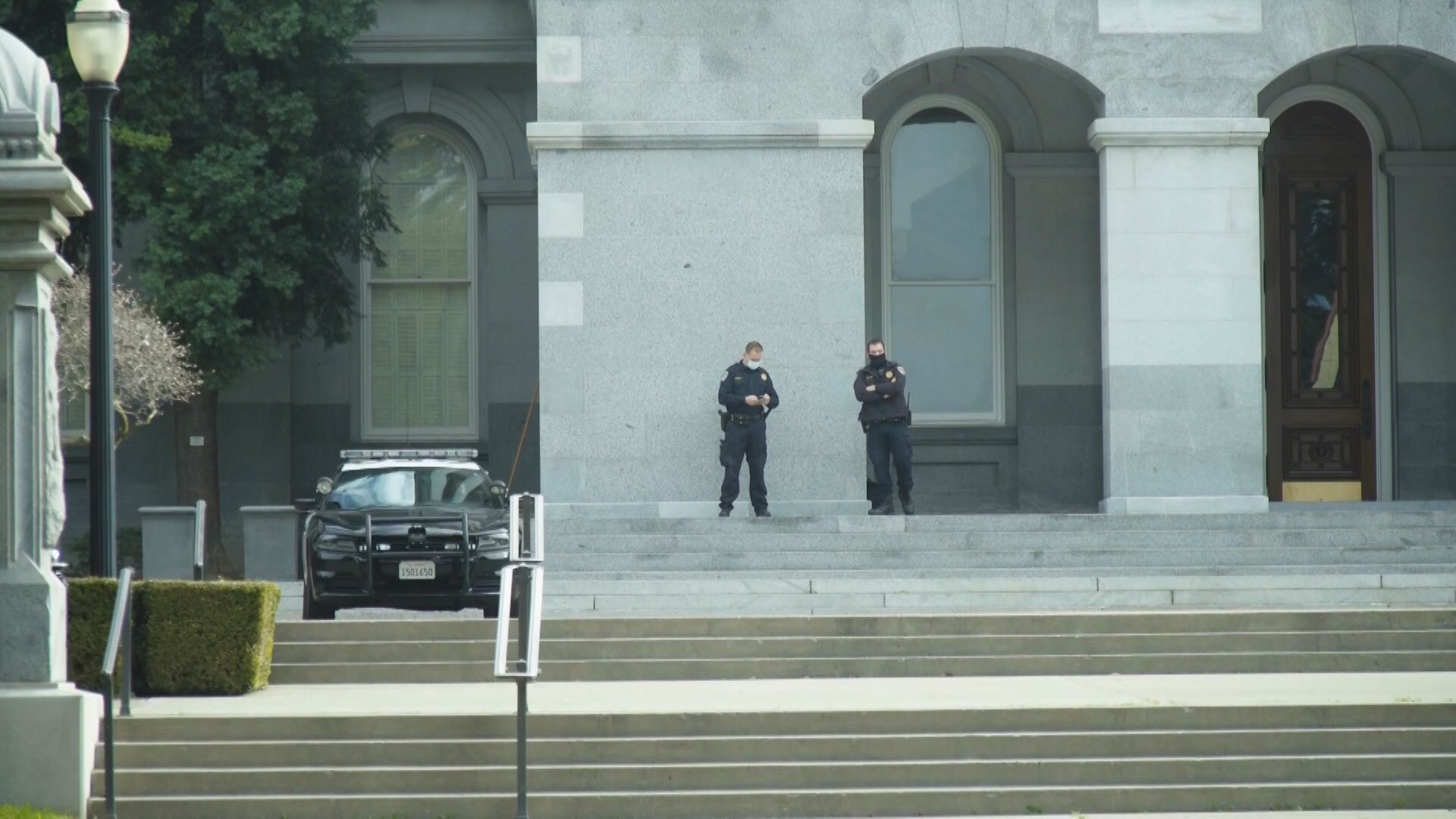SACRAMENTO, Calif. — The Sacramento County Sheriff’s office confirmed multiple deputies were in Washington, D.C. on Jan. 6, 2021.
The sheriff’s department would not say exactly how many were involved, but Sheriff Scott Jones issued a statement saying:
"There were three separate events that occurred on January 6th in Washington DC: A presidential rally, a protest, and a riot. If any employee was at the rally, their presence there is Constitutionally protected and does not give rise to any misconduct. If they were present at the protest, although there is nothing inherently actionable about an officer's involvement in a peaceful protest, there are questions that we would seek answers to in determining whether their conduct remained appropriate. If an officer was involved in the riot--which in my estimation would be incredibly unlikely--there would be extreme repercussions, up to and including termination. At this point, we have no information or reason to believe that any of our officers were engaged in anything other than the rally, but we are continuing to investigate."
With the preparation for possible unrest in Sacramento this weekend, ABC10 wanted to better understand what this means for the community. We reached out to Ernest Uwazie, Professor and chair of the Criminal Justice Department at Sacramento State, and Franklin Zimring, Professor of Law at UC Berkeley.
Uwazie admitted law enforcement officers are always under a microscope.
“They play a very important role and oftentimes tend to be much more scrutinized than any agency of the criminal justice system,” he said.
Zimring said it all depends on the officer’s individual actions.
“The nature of the individual’s participation becomes very important before you make a judgment about that,” he explained. “Does even showing up mean a violation of public duty? I don’t think so.”
Uwazie said the officer would have to be evaluated by leadership, the community, and also by taking a look at themselves.
“If I am the sheriff or police chief, and I have one of my officers that has participated in that, I would want to call any of them in and ask some tough questions,” Uwazie said.
He said the officer’s response would affect their assignment of duties.
“Should I assign them to be on the street? Or in the office? Or some other type of alteration or change or adjustment at least on an interim basis?” Uwazie questioned.
Uwazie said the community also has the right to ask questions if an officer went to D.C on Jan. 6.
“We have questions that we need the appropriate leaders to address,” he said. “And until those questions are addressed, we don’t want those officers to be policing our neighborhoods. The community has the right to make that demand.
Uwazie said the officer should also question him or herself.
“It doesn’t take away from your role as a law enforcement officer but it may mean, at this point in time for this particular duty, there is probably a reason for me not to pose a danger to myself, to a member of the community, or even my colleagues,” Uwazie said.
Uwazie also said it is important that the officers didn’t wear the badge or use their training as a law enforcement office, even unwittingly, to contribute to unlawful conduct.
Zimring weighed in on if it matters that some of the deputies who were in D.C on Jan. 6 could possibly now be among those protecting the capitol in Sacramento.
“Not if they do their job,” Zimring said. “If they don’t feel it, I don’t feel it. So the real question is whether they’re conflicted or not?”
Zimring said law enforcement officers are used to functioning in a professional capacity despite personal beliefs.
“That goes with the territory,” he said. “But I think they know it. And I don’t think it’s an enormous source of conflict for them. That simply goes with the territory of wearing the uniform and exercising that sort of authority.”
Continue the conversation with Mike on Facebook.



















